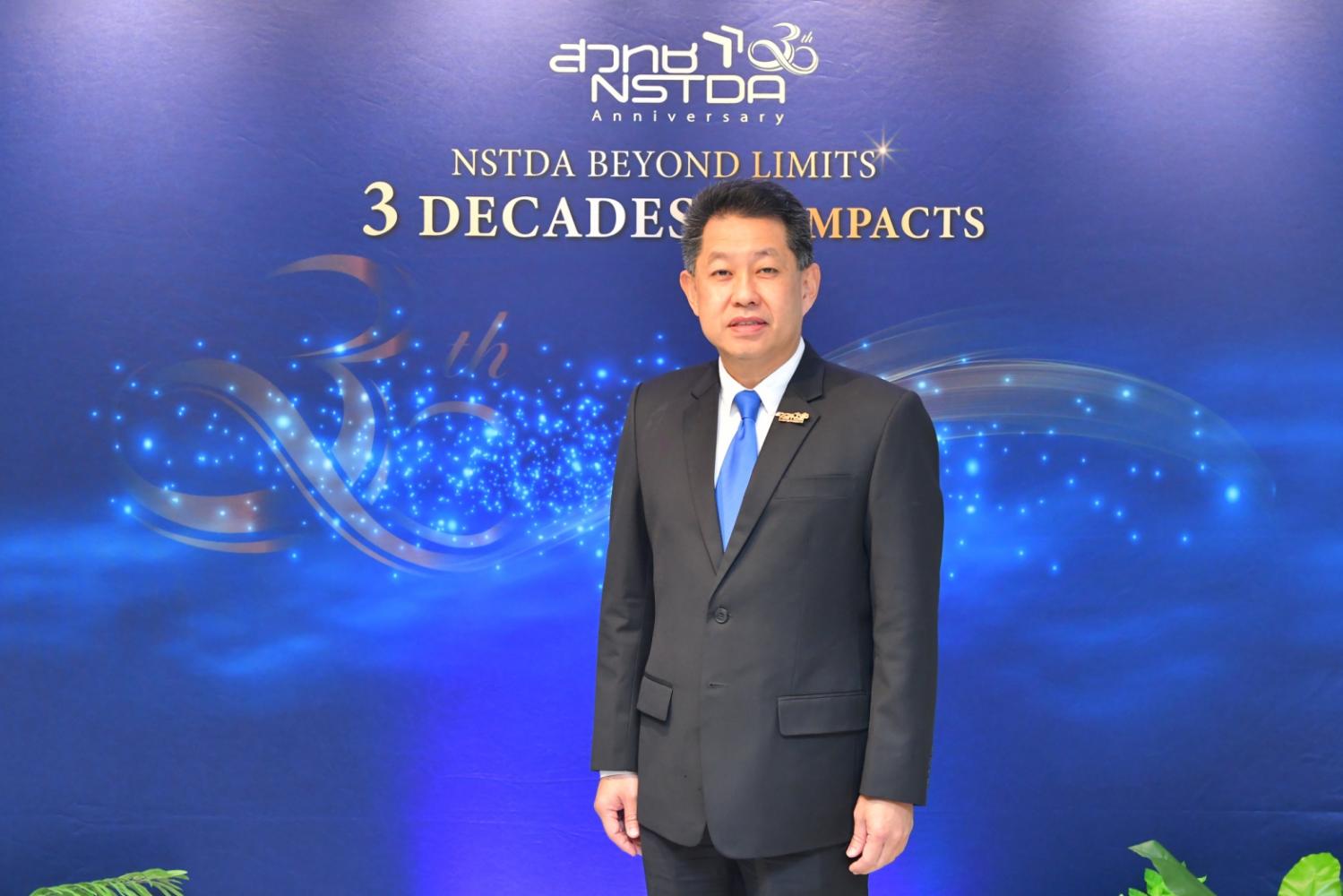
The National Science and Technology Development Agency (NSTDA) says it will spend 6 billion baht in 2021 fiscal year to develop science and technology catered to economic and social improvement and the government's initiatives of Bio-Circular-Green (BCG) economy.
"We will continue to use innovation, science and technology to add more value in real sectors, particularly agriculture and food, as well as support for people's participation," said Narong Sirilertworakul, president of the NSTDA.
Half of the sum will go to the Eastern Economic Corridor of Innovation (EECI) project, a new innovation hub in Rayong, the construction of which is 65% complete.
The construction is expected to be completed by year-end.
The hub will be home to various facilities, such as biorefinery and smart manufacturing testing centres.
According to Mr Narong, the NSTDA will leverage science and technology to combat Covid-19, ranging from measures to prevent contraction and support treatment.
The agency will develop Active Pharmaceutical Ingredients (API) for favilavir that can fight Covid-19 and support vaccine manufacturing infrastructure to combat future pandemics.
In 2020, research and technology development by the NSTDA generated 66.5 billion baht in economic and social impact, 7.13 times the expense.
The NSTDA plays a part in the development of science and technology used by the private sector for manufacturing worth 13.79 billion baht with 451 proposed intellectual property registrations.
This includes Battery 20C, G Rock innovation, lightweight construction material as well as B10 fuel.
The agency is also developing DNA-based purity testing for F1 hybrid seeds, which refers to the selective breeding of a plant by cross-pollinating two different parent plants for export.
The NSTDA also developed the National Biobank of Thailand (NBT), which keeps 6,051 genome data samples, 1,391 plant samples, 6,501 microbes as well as 12,936 DNA samples.
Chai Wutiwiwatchai, director of the NSTDA's National Electronics and Computer Technology Center (NECTEC), said his agency will use technology to increase yield for farmers.
The NECTEC plans to roll out an open source software for real-time monitoring for precision farming, he said. The project is under collaboration with mobile operator Total Access Communication (DTAC) and the Chaipattana Foundation.
The NECTEC leverages artificial intelligence through a partnership with tech firm IBM for agricultural management.